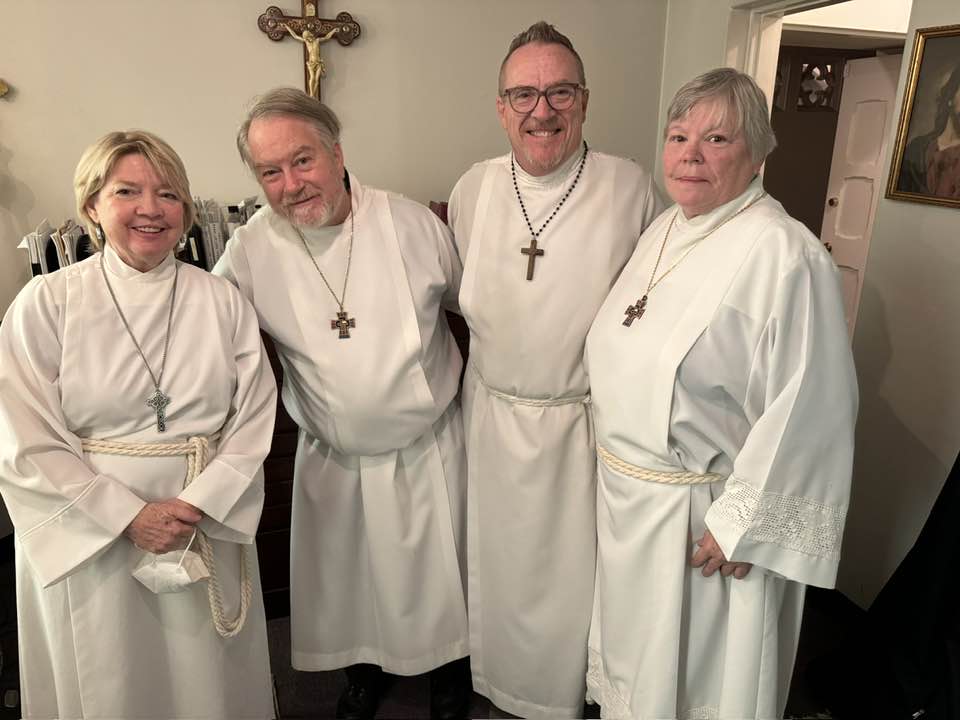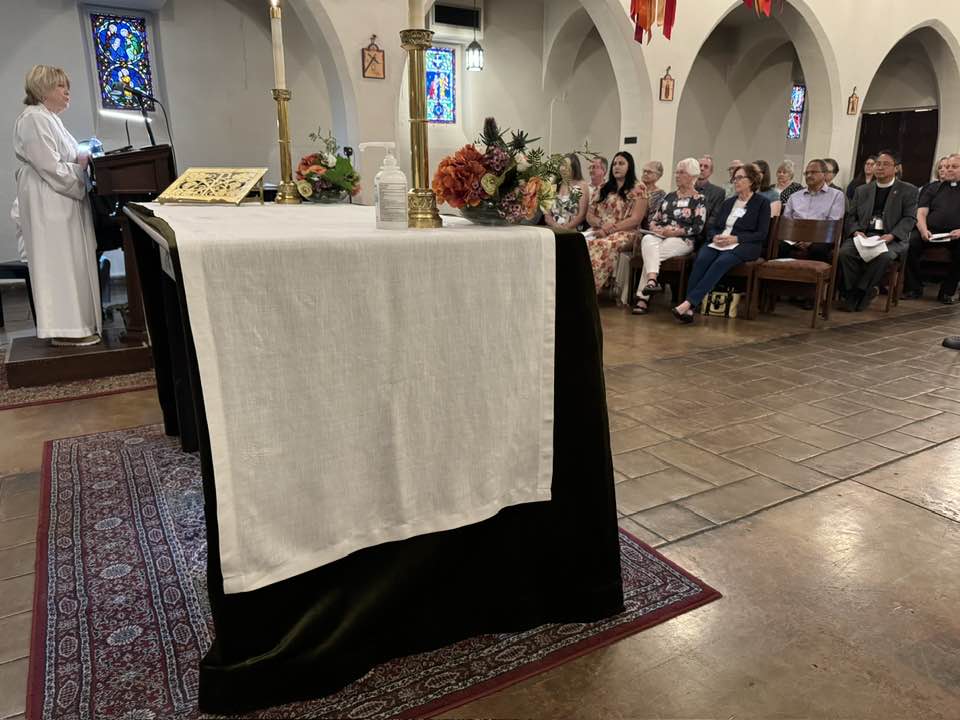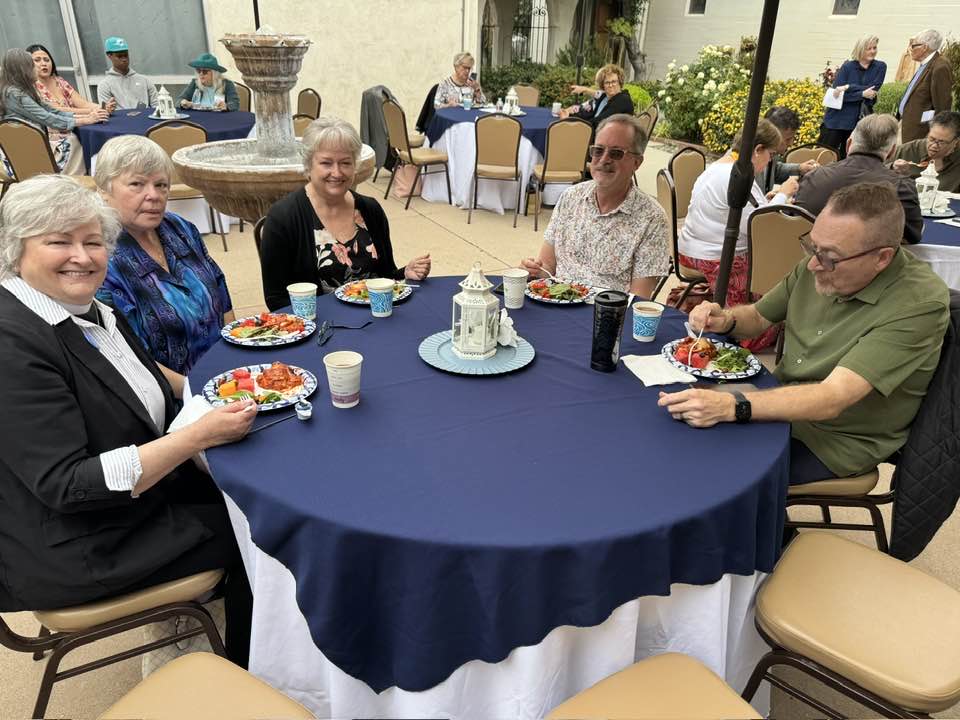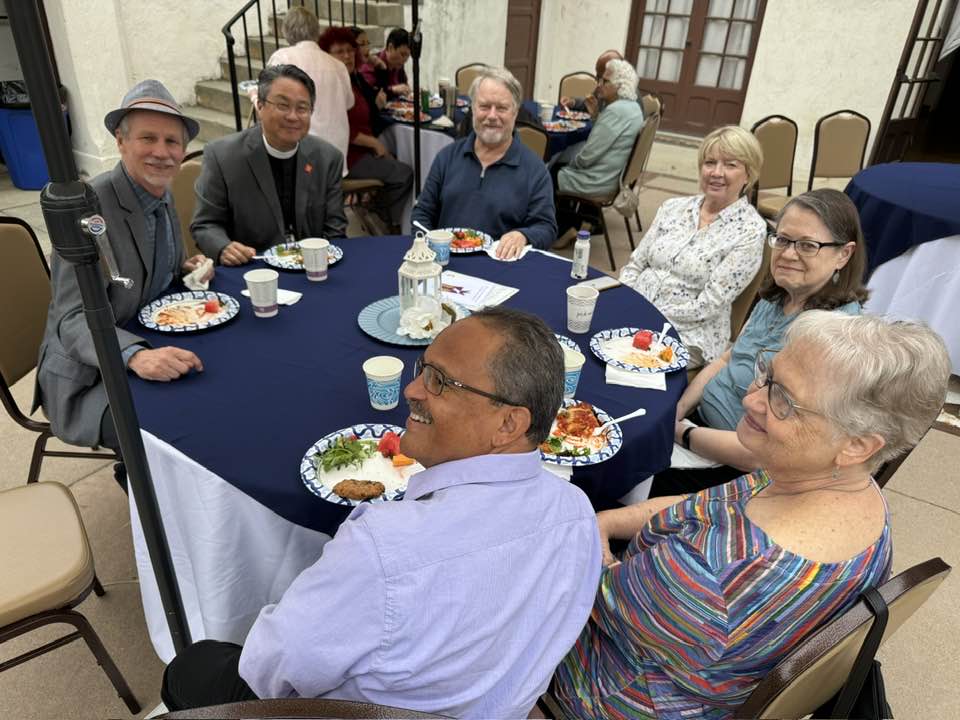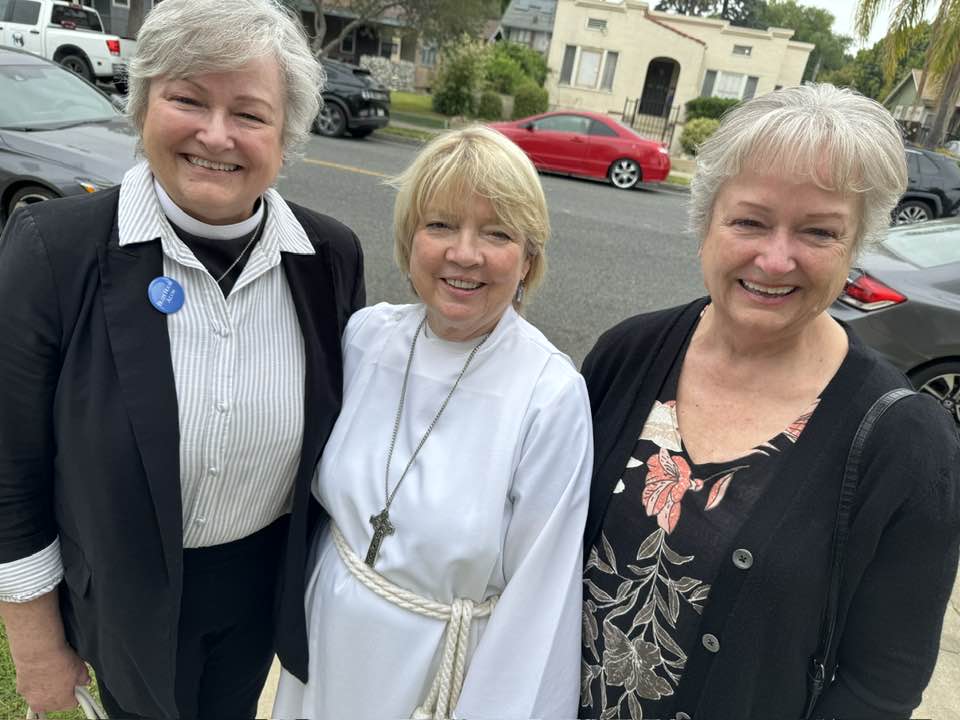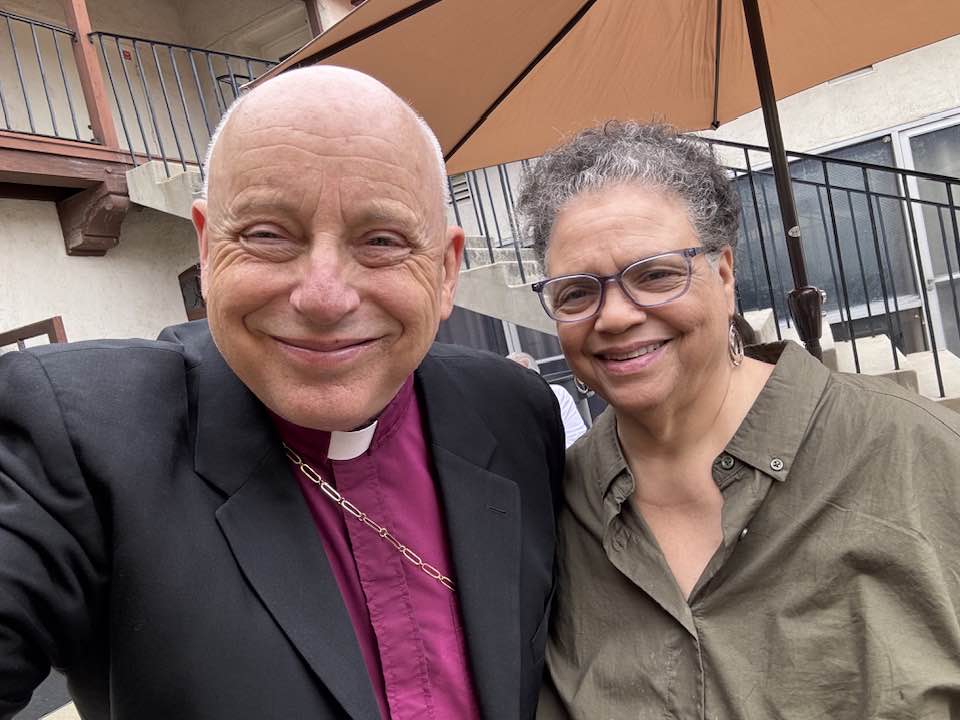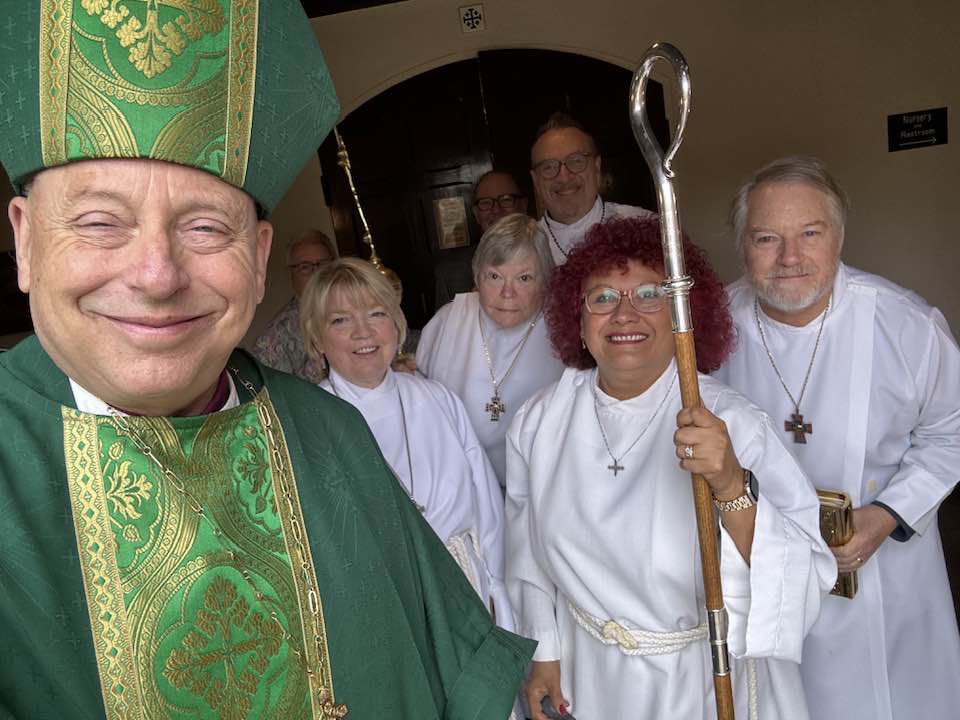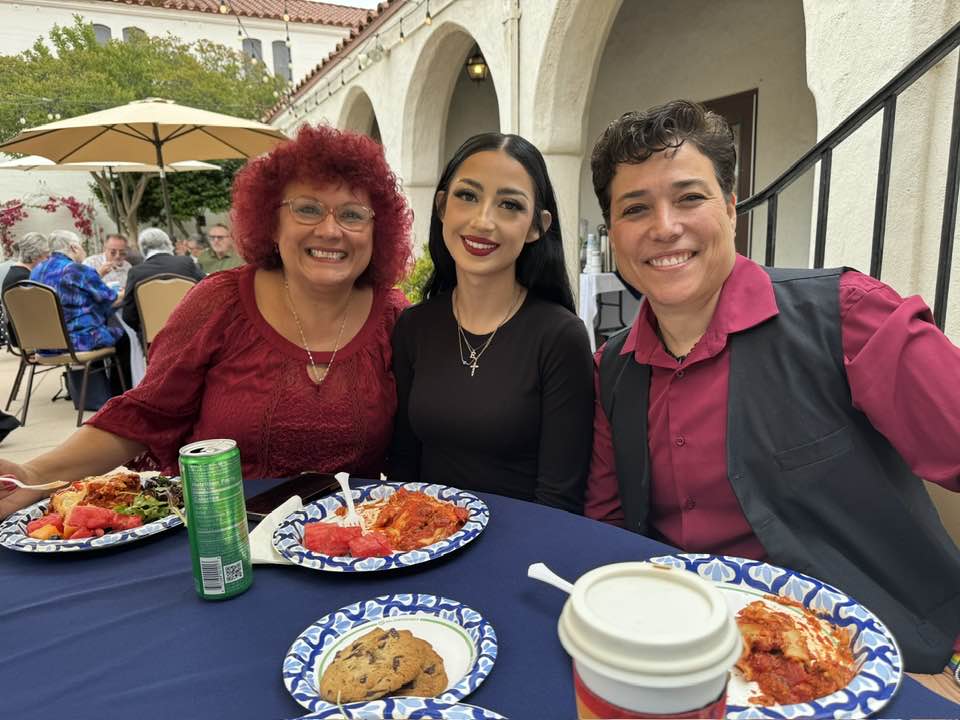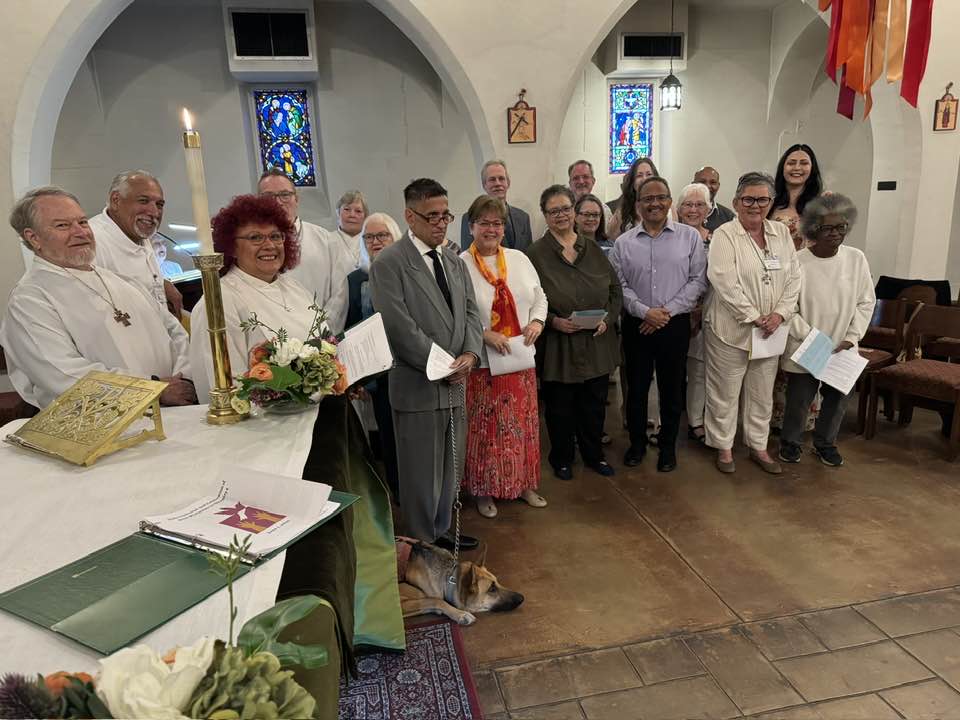
Pat Holt has attended St. Paul’s Episcopal Church in Pomona since birth. She’s done everything around campus that a layperson can. In the seventies, her two eldest daughters attended the parish school, now closed.
Now she’s senior warden. Since the retirement of the beloved St. Paul’s rector, the Rev. Canon Mark Hallahan, she and the vestry have been exploring the increasingly common question in The Episcopal Church of how a lively, service- and justice-driven parish like St. Paul’s can survive and thrive if, for whatever reason, for the time being, it can’t afford to pay a full-time rector.
On Saturday, commencing yet another season of her life-long ministry at St. Paul’s, Pat stood in the nave with 21 colleague lay leaders and was commissioned by the Holy Spirit, mediated by the Episcopal Diocese of Los Angeles, as a Eucharistic minister and visitor as well as for her ministry of governance. Others were commissioned as worship and pastoral leaders and preachers — all part of a pilot program offered by Bloy House, The Episcopal Theological School at Los Angeles in what we call Deanery VI, comprising missions and parishes in the south central part of our sprawling diocesan family.
Besides a hearty crew of 13 from St. Paul’s, we commissioned brilliant lay leaders from Holy Trinity Episcopal Church – Covina, CA, St. Ambrose Episcopal Church in Claremont, Saint John’s Episcopal Church in La Verne, and Saint Mark’s Episcopal Parish, Upland, CA. The area dean and St. Mark’s rector, the Very Rev. Keith Yamamoto, provided indispensable leadership in getting the project underway.
Many were commissioned to do ministries they’ve been doing for years. Indeed the church’s canons require us to license lay leaders, not only in the five areas in which graduates were commissioned this week but also as catechists and evangelists. Under the leadership of Bloy House’s president, the Very Rev. Canon Gary Hall, and its first-ever lay dean, Canon Linda Tolin Allport, supported by a grant from Trinity Church Wall Street, we’re now requiring candidates to do classwork, just as the church does for deacons and priests. Our proposition is that we lift up the lay orders as they deserve to be, and best ready them for co-leadership in the 21st century church, when we bolster the credential with some academic cred.
And so Bloy House was not messing around. While I’m not sure they pulled any all-nighters, some of the students used the term boot camp to describe one especially intense month, with three Zoom classes each week, mostly taught by experts in our own diocese.
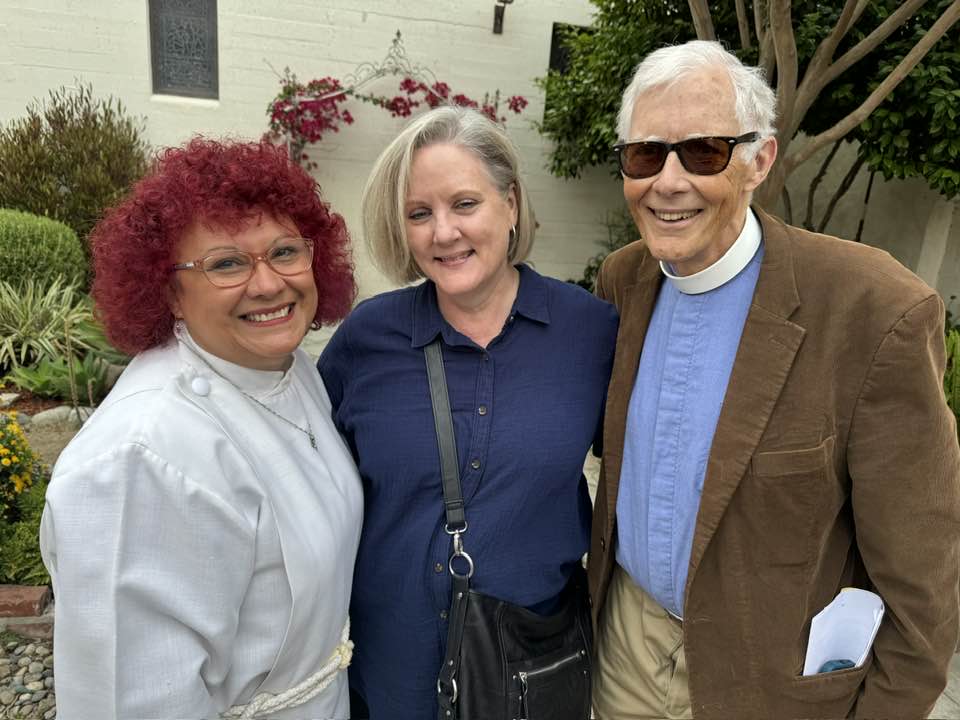 Working closely with President Hall, one of the most respected priests in The Episcopal Church, Canon Allport, a gifted Christian educator and my co-teacher for many classes during my days as vicar of St John Chrysostom Church, has attracted church-wide attention for her work in lay empowerment. It all felt as if it was coming together Saturday morning during the profoundly moving service of Holy Eucharist that she had assembled, working with Melissa Hayes, director of liturgy at All Saints Episcopal Church in Pasadena and yet another brilliant lay leader. The experience of giving the ministers their credentials and offering a blessing was of the same substance of what I feel on deacons’ and priests’ ordinations days – which is to say, the Holy Spirit clutching my heart, squeezing out tears of joy.
Working closely with President Hall, one of the most respected priests in The Episcopal Church, Canon Allport, a gifted Christian educator and my co-teacher for many classes during my days as vicar of St John Chrysostom Church, has attracted church-wide attention for her work in lay empowerment. It all felt as if it was coming together Saturday morning during the profoundly moving service of Holy Eucharist that she had assembled, working with Melissa Hayes, director of liturgy at All Saints Episcopal Church in Pasadena and yet another brilliant lay leader. The experience of giving the ministers their credentials and offering a blessing was of the same substance of what I feel on deacons’ and priests’ ordinations days – which is to say, the Holy Spirit clutching my heart, squeezing out tears of joy.
One of the newly commissioned ministers, Sandra Martinez-Moore, a Bloy House board member, also served as my chaplain. A longtime St. Paul’s stalwart and vestry member like Pat Holt, she is a prime example of our proposition that brilliant, well-educated lay leaders will be indispensable to keeping the light of justice- and love-based Anglican-Episcopal witness shining in our time, when the world has never needed it more. Now commissioned for governance and as a pastoral leader, preacher, and worship leader, Lynn Nickens told me how, in her her work as a licensed clinical social worker, she has felt sanctified all along, touching and changing lives, often when people are feeling their worst.
As our preacher, bearing witness in the name of second-century teacher Justin Martyr, another layperson as far as we know, Canon Allport posed the central question for all ministers, lay and ordained: “Why do I say?” When someone is sick or hurt. When someone has died. When someone insists that the Bible says homosexuality is evil, and every Episcopal preacher and teacher needs to be prepared to explain chapter and verse that there’s no hate in the gospel, no matter what anyone says.
“To all of us ministers here today,” Linda said, “who have been spending the last two months learning about our church, our values, our worship, our approach to the Bible, how to care for each other, and how to make wise governance decisions for our church: We’ve learned about these things, but without abiding in our relationship with God, without that flame in our heart, we won’t know what to say. I encourage us to nurture that intimate relationship with God through Jesus, so that we never lose sight of the foundation of our ministry and never lose sight of the one who sends us.”
